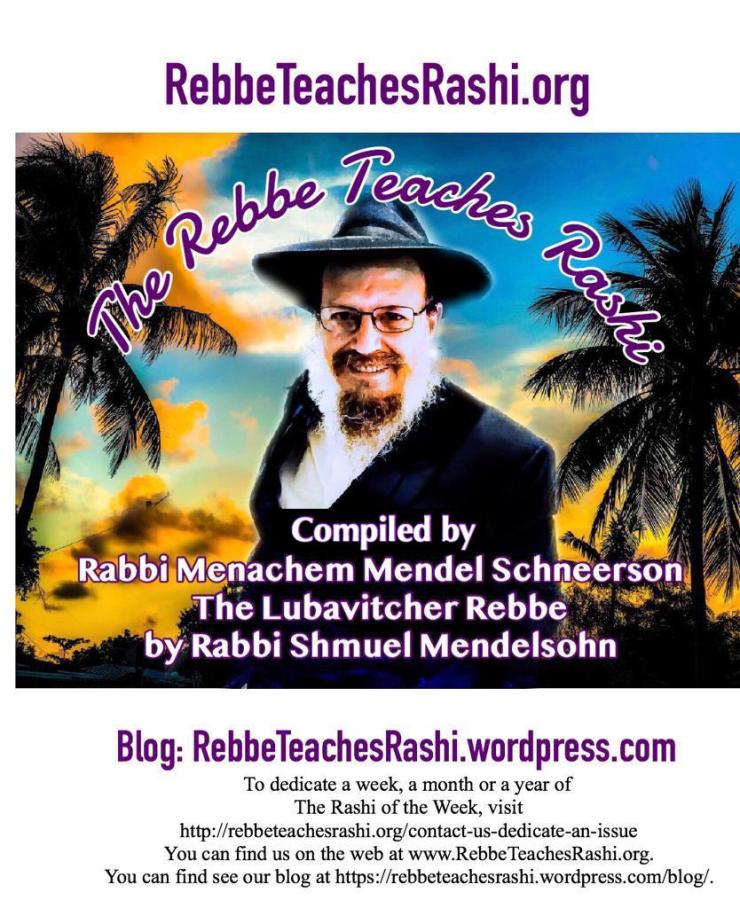This week we read the Torah portion Vayakhel. Moshe gathers the entire Jewish nation together, and discusses the laws of Shabbos. He then tells them to donate the materials which would be needed for constructing the Mishkan.
Moshe introduces the discussion of the Mishkan by saying that[1] “… this is the word that Hashem has commanded me to say.” Rashi cites the words from the verse “this is the word that Hashem has commanded.” He explains that Hashem has commanded “me to say to you.”
We need to understand what Rashi is adding to our understanding of Moshe’s words. Obviously, Moshe is telling us that which Hashem had commanded him to say to us! There does not seem to be a need for any explanation whatsoever.
The explanation is, that the word saying (לאמר in Hebrew), always connotes transmitting words to someone else. Moshe was commanded to tell us these commandments, but not to actually perform them. This explains why Rashi says further on[2], that “Moshe had done no work in the Mishkan.” However, this leaves us with another question. Why did Moshe, of all people, not participate in building the Mishkan?
This can be understood by examining a deeper aspect of this. Moshe’s entire being was Torah. Therefore, he was the one and only who received the Torah from Hashem for all Jews in all generations. Our Sages tell us[3] that “young students studying Torah are not permitted to neglect their learning to build the Bais Hamikdosh.” If this is true of the Torah study of young children, how much more so is it true of Moshe’s Torah study? That is the reason that Moshe was not involved in the building of the Tabernacle. The entire point was that his level, that of Torah, is even higher than that of the Mishkan.
However, he was the one and only that could convey this important commandment, this part of the Torah, to the Jews. The reason that Hashem told it to him was in order that he would be able to command it to us. That is why Rashi writes, “to command it to me to say to you.”
There are those who can, hence must, make Torah their constant occupation. For one who can, this is an even higher form of Divine service than transforming the “gold, silver and copper” of the world into a G-dly sanctuary. Nevertheless, this does not exempt them from learning Torah with others. They must teach others who are not exclusively devoted to Torah study how to transform this physical world into a sanctuary for Hashem.
Wishing one and all a good Shabbos!
Rabbi Shmuel Mendelsohn
Adapted from Likkutei Sichos Volume 6, Pages 221-224
IN LOVING MEMORY OF OUR FATHER
Mr. Sholom Moshe ben Reb Shlomo Meir
Hacohen ע”ה Cohen
Passed away Shabbos Parshas Beshalach,
13 Shevat, 5779
May His Soul be bound in the Eternal Bond of Life
*
DEDICATED BY HIS FAMILY
* * *
לעילוי נשמת
ר’ שלום משה בן ר’ שלמה מאיר הכהן ע”ה כהן
נפטר ש”ק פ’ בשלח, י”ג שבט, ה’תשע”ט
ת. נ. צ. ב. ה.
*
יו”ל ע”י בני משפחתו שיחיו
[1]. Our Parshas, Shemos 35:4.
[2]. Rashi’s comments to Parshas Pekudei, Shemos 39:33.
[3]. See Talmud Shabbos 119, b.

